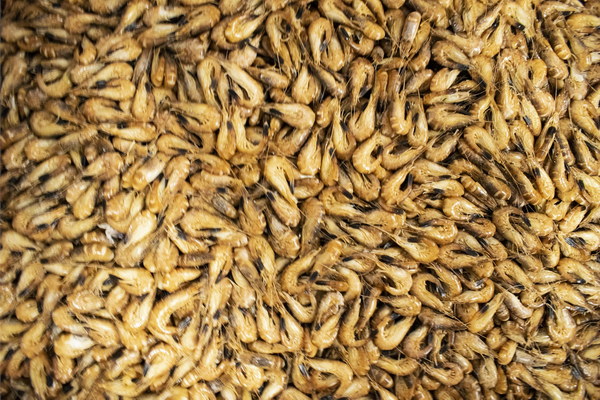Renal Yang Deficiency What to Eat for Nutritional Therapy
Renal Yang Deficiency, a traditional Chinese medical condition, refers to a weakness in the body's ability to generate and maintain Yang, or the body's warming and protective energy. This condition can manifest in various symptoms such as fatigue, cold limbs, and weakness. To address this deficiency, nutritional therapy plays a crucial role. Here's a comprehensive guide on what to eat for renal Yang deficiency.
Understanding Renal Yang Deficiency
Before diving into the dietary recommendations, it's important to understand the concept of Renal Yang Deficiency. In traditional Chinese medicine (TCM), the kidneys are considered the root of life, storing essential substances like essence, bone marrow, and sperm. Yang, in this context, is the vital energy that governs the body's warmth, strength, and vitality. A deficiency in renal Yang can lead to a range of symptoms, often associated with a weakened immune system and decreased physical endurance.

Dietary Recommendations for Renal Yang Deficiency
1. Warm and Energizing Foods
- Nuts and Seeds: Almonds, walnuts, and sesame seeds are great sources of protein, healthy fats, and minerals like zinc and magnesium, which help to boost Yang.
- Root Vegetables: Carrots, beets, and sweet potatoes are warming and nourishing to the kidneys. They are rich in beta-carotene, vitamins, and minerals.
- Meats: Lean meats like chicken, lean beef, and pork are considered warming. However, it's important to avoid overcooking and to choose organic and grass-fed options when possible.
2. Herbs and Spices
- Cinnamon: This spice not only adds flavor to dishes but also has warming properties that can help to increase Yang.
- Ginger: Known for its warming effect, ginger can be added to teas, soups, or even taken in capsule form.
- Cordyceps: A traditional Chinese herb, cordyceps is believed to boost kidney Yang and enhance overall vitality.
3. Foods Rich in Iodine
- Seaweed: Kelp, nori, and wakame are high in iodine, which is essential for thyroid function, which, in turn, can help to maintain a healthy Yang.
- Iodized Salt: Ensure your salt is iodized to support thyroid health.
4. Dark Leafy Greens
- Spinach, kale, and collard greens: These greens are rich in iron, calcium, and magnesium, which can help to nourish the kidneys and support Yang.
5. Avoiding Cooling Foods and Beverages
- Cold Drinks: Cold water, iced tea, and cold fruit juices should be avoided as they can further cool the body.
- Excessive Caffeine: Caffeinated beverages like coffee and tea can be cooling and should be consumed in moderation.
- Sugar: Refined sugars can deplete the body's energy and should be avoided or limited.
Meal Planning Tips
- Balance Your Meals: Ensure that each meal includes a good balance of protein, carbohydrates, and healthy fats.
- Warm Soups and Stews: Incorporate warming soups and stews into your diet, using ingredients like chicken, root vegetables, and herbs.
- Regular Meals: Eat regular, balanced meals at consistent times to maintain a stable energy level.
- Stay Hydrated: Drink warm or room-temperature water throughout the day to support kidney function.
Conclusion
Incorporating these dietary recommendations into your daily routine can help to nourish and strengthen the kidney Yang. Remember, while food can play a significant role in addressing Renal Yang Deficiency, it's important to consult with a healthcare professional or a TCM practitioner for a comprehensive treatment plan. By focusing on warming, nourishing, and balancing your diet, you can take a step towards improving your overall health and vitality.









